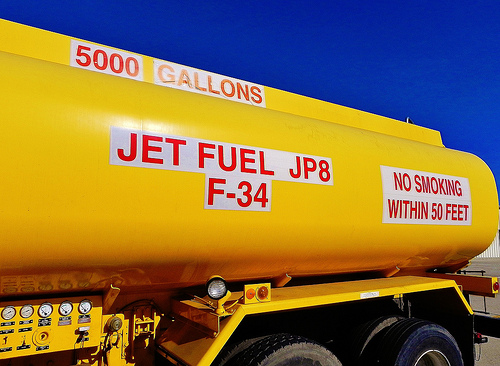A landmark financing deal has been struck to develop Pakistan’s first Sustainable Aviation Fuel (SAF) facility in Sheikhupura, marking a significant stride in the aviation sector’s decarbonisation efforts.
The $121 million funding includes support from ADB and IFC for the SAF facility, which will convert waste oils into low-carbon aviation fuel, reducing carbon emissions significantly. The signatory SAFCO Venture Holdings Limited (SAFCO)
The Asian Development Bank (ADB) has committed $86.2, of which $41.2 million will come through its ordinary capital resources, while $45 million comes in the form of syndicated loans involving The Emerging Africa & Asia Infrastructure Fund.
Meanwhile, the International Finance Corporation (IFC) is playing a pivotal role with up to $35 million in equity and debt financing. This SAF facility, which will produce 200,000 tons of fuel annually, is expected to significantly cut down carbon dioxide emissions by 500,000 tons each year.
IFC is providing up to $30 million to SAFCO Venture Holdings Limited through a combination of preference shares and shareholder loans, of which $10 million coming from IFC’s blended concessional finance. Additionally, IFC is offering a direct loan of up to $5 million.
The facility will use waste-based feedstock, such as used cooking oil, to produce SAF and bionaphtha, contributing to a cleaner aviation industry. This project aligns with global climate goals, as SAF can reduce greenhouse gas emissions by up to 94% compared to conventional jet fuel.
IFC’s financing is part of a larger effort to promote circular economy principles in Pakistan by utilising waste oils for fuel production. Moreover, the project is expected to create hundreds of direct jobs and thousands of indirect opportunities, enhancing Pakistan’s export capabilities and promoting sustainable development.
This initiative marks the first private sector-led SAF project in Asia and the Pacific, and the first of its kind for ADB in its developing member countries, excluding China. The success of this project will further reinforce the role of innovative, sustainable solutions in the global fight against climate change.
What is SAF?
Aviation is responsible for approximately 3.5% of global carbon dioxide emissions, and SAF is a promising solution for reducing the environmental impact of the sector. SAF, a biofuel produced from renewable biomass and waste materials, can reduce greenhouse gas emissions by up to 94% when compared to conventional jet fuel.
It undergoes chemical conversion processes like Fischer-Tropsch synthesis, Hydroprocessed Esters and Fatty Acids (HEFA), and Alcohol-to-Jet (AtJ) to meet the stringent safety and performance requirements of jet fuel. The project will play an essential role in tackling emissions from one of the hardest-to-decarbonize industries.
The new facility is also the first of its kind in South Asia and represents a major step toward making SAF more accessible. The facility’s strategic location in Punjab, an area with considerable feedstock potential, positions it to become a key player in the regional SAF market. SAFCO Venture is owned by Taimur Shaikh and Ali Shaikh.
Economic and Environmental Impact
The SAF facility is expected to create approximately 300 direct jobs and an estimated 20,000 indirect jobs in the waste-to-fuel value chain, including in feedstock collection, fuel production, and SAF-related industries. The project will also contribute to Pakistan’s economic growth by boosting exports and strengthening the country’s presence in the global renewable energy market.
Moreover, with the production capacity of 200,000 tons of SAF annually, the facility will also produce 18,000 tons of bionaphtha, a raw material for sustainable plastic production. This dual output will further enhance Pakistan’s industrial diversification and add value to its renewable energy sector.
Both ADB and IFC have highlighted the significance of this project in their ongoing commitment to tackling climate change. ADB’s Director General for Private Sector Operations, Suzanne Gaboury, noted that this project “is a significant step towards decarbonizing this hard-to-abate sector” and that it aligns with ADB’s role as Asia and the Pacific’s climate bank. IFC’s Regional Industry Head, Ashruf Megahed, echoed similar sentiments, calling the SAF project an example of how fuel production can be integrated into a circular economy with minimal environmental impact.




